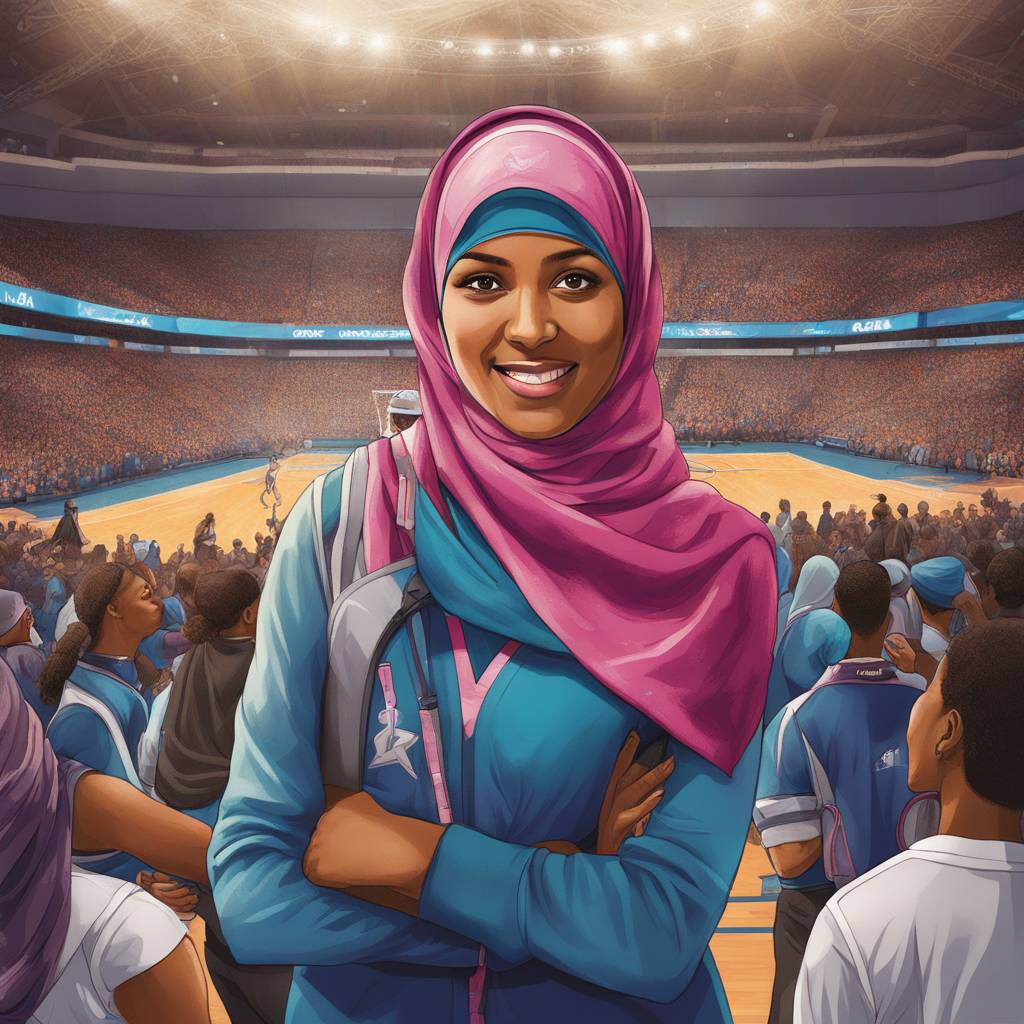N.C. State’s Jannah Eissa and UC Irvine’s Diaba Konate are breaking barriers and inspiring Muslim women by wearing hijabs while playing basketball during the NCAA Tournament. Although they are not the first women to do so, with the increased viewership and attendance, they are gaining recognition for their visibility. Konate expressed the importance of representation, noting that it brings her happiness to see young Muslim women looking up to her and Eissa as role models. She also mentioned her admiration for Bilqis Abdul-Qaadir, who made history by wearing a hijab in college basketball a decade ago and was instrumental in overturning FIBA’s ban on headgear in 2017.
Former UConn player Batouly Camara, who was among the first to wear a hijab in Spain’s LF1 league, commended Eissa and Konate for representing their religion in the tournament. She emphasized the significance of their presence on the court and the message it sends to girls worldwide, reaffirming that they belong in the sports field regardless of background or beliefs. Konate, who transferred to UC Irvine from Idaho State, shared her hope to play in a hijab in France, where she is restricted from doing so due to the French Federation of Basketball’s regulations prohibiting religious or political attire. Despite the limitations, she remains hopeful for a change in the future.
Eissa and Konate, although they have not met in person, are mutually aware of each other’s presence as Muslim women wearing hijabs in basketball. Eissa, who joined N.C. State’s team as a walk-on, expressed her joy at knowing there are others like her representing their faith in sports. She recounted an experience where a group of young Muslim girls attended her game and continued to support her throughout the season, which made her realize the impact she could have as a role model for them. Eissa, who grew up in Cairo before coming to N.C. State, credits her fans for motivating her during challenging times and inspiring her to push forward for the image of women in hijabs in sports.
Both Eissa and Konate are determined to make a difference in the representation of Muslim women in sports and beyond. Eissa’s connection to N.C. State, where her father received his PhD and her sisters attend, further motivates her to strive for success on the court. She acknowledges the responsibility she carries as a role model for young girls and hopes to continue breaking barriers and challenging stereotypes. Konate, who started wearing a hijab in 2020, aspires to see a change in French regulations that would allow her to compete in her home country while representing her identity and beliefs.
The visibility of Eissa and Konate as Muslim women wearing hijabs in basketball serves as a powerful symbol of inclusivity and diversity in sports. Their presence in the NCAA Tournament highlights the importance of representation and inspires others to embrace their identity while pursuing their passions. As they continue to make strides in their athletic careers, they are paving the way for future generations of Muslim women to see themselves reflected and celebrated in the world of sports. Both Eissa and Konate stand as living examples of perseverance, determination, and the ability to shatter stereotypes, making a lasting impact on the sports community.








